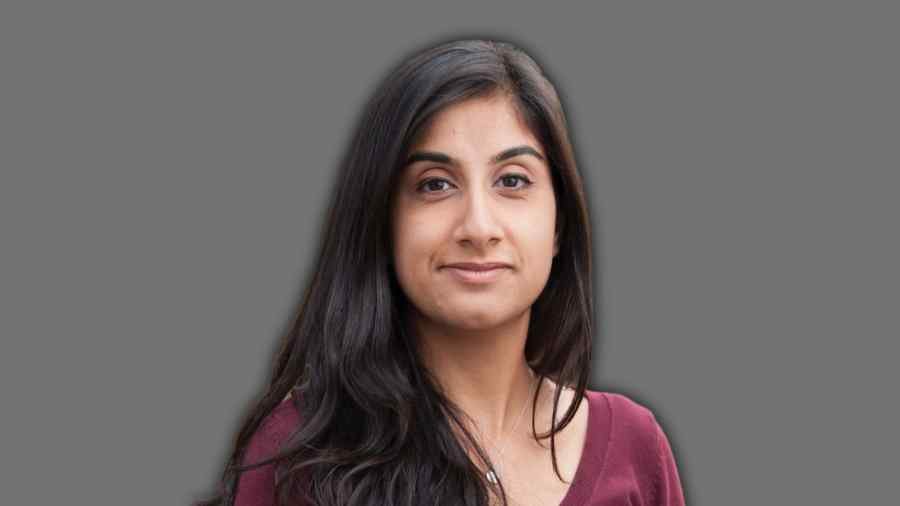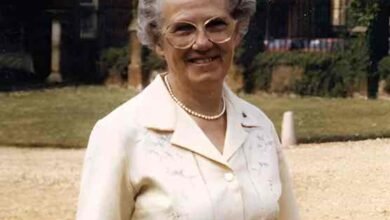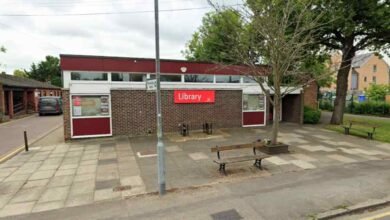Priya Atwal: A Visionary Historian Reframing Empire and Monarchy

Priya Atwal is one of the most dynamic and insightful historians in modern Britain, celebrated for her groundbreaking research on empire, monarchy and identity. As a historian, author and broadcaster, she bridges the gap between academic study and public understanding, offering an inclusive vision of how imperial and royal histories shape our world today. Her work not only reinterprets the political and cultural narratives of the past but also encourages communities to reconnect with their own histories.
In a time when questions of identity, colonial legacies and power structures dominate public debate, Priya Atwal’s scholarship brings fresh nuance and humanity to complex subjects. Her studies of the Sikh Empire, royal families and imperial politics stand as a model of how careful research and cultural sensitivity can reshape how we think about history.
Early Life and Education
Born and raised in Buckinghamshire, England, Priya Atwal developed an early fascination with history and storytelling. She was drawn to the idea that the past could be understood through the voices of those often left out of the mainstream narrative—particularly women, children and marginalised communities.
She pursued her higher education at the University of Oxford, where she later completed her doctorate. Her doctoral research focused on the royal family of the Sikh Empire and their connections with the British monarchy during the nineteenth century. Through this study she revealed the intricate ways in which royal families interacted across borders, challenging the common belief that monarchy was purely a national institution.
Her academic journey shaped her intellectual outlook: rigorous, cross-cultural and deeply interested in how identities are formed in contexts of power, empire and migration.
Academic Career and Roles
Priya Atwal has held teaching and research roles at several prestigious universities, including Oxford and King’s College London. She is known for her engaging lectures, her dedication to her students, and her ability to connect historical research with modern-day relevance.
She currently serves as a Community History Fellow at the University of Oxford, where her mission is to make history more inclusive, collaborative and accessible. In this role, she bridges academic research with local communities, helping museums, schools and cultural organisations to rediscover stories that have been overlooked or forgotten. Her approach reflects a deep belief that history is not only about studying the past but also about understanding how it continues to shape the present.
Research Interests and Areas of Expertise
Atwal’s research covers a broad range of themes centred around empire, monarchy and cultural politics. Her particular expertise lies in nineteenth- and early twentieth-century South Asian and British history, with a focus on royal courts, gender and identity.
She studies how monarchies across the world functioned as political and cultural systems that interacted with empire. Instead of viewing empire solely as a British project, she explores how non-European rulers negotiated, resisted or adapted to the pressures of imperial expansion. This comparative and global approach has made her work stand out in a field often dominated by Eurocentric perspectives.
Gender is also central to her work. She investigates how royal women and children were not passive symbols but active participants in shaping dynastic politics, diplomacy and public image. Her research demonstrates how these individuals influenced the politics of empire, both within their own courts and in their relations with the British monarchy.
Major Work: Royals and Rebels – The Rise and Fall of the Sikh Empire
Priya Atwal’s most celebrated book, Royals and Rebels: The Rise and Fall of the Sikh Empire, has been widely praised for its originality and depth. In this work, she re-examines the history of the Sikh Empire, moving away from the traditional focus on military conquest and decline. Instead, she illuminates the rich cultural and political networks that defined the empire during the reign of Maharajah Ranjit Singh and his successors.
What sets this book apart is Atwal’s ability to merge meticulous research with compelling narrative. She uncovers the human stories behind royal power—stories of loyalty, ambition, gender politics and cross-cultural exchange. Her analysis reveals how royal families operated not only within Punjab but across transnational networks that linked South Asia with Europe.
By centring women and children in her account, Atwal challenges the idea that history belongs only to kings and generals. She presents a vibrant image of an empire built on relationships, diplomacy and cultural negotiation. The book also explores how British imperial power reshaped the destinies of Sikh royalty, transforming them from rulers into symbols within the British imperial imagination.
Royals and Rebels has become essential reading for anyone interested in South Asian history, imperial studies or the history of monarchy. It represents a significant contribution to both academic scholarship and public understanding.
Approach and Methodology
Atwal’s work is characterised by an interdisciplinary approach that blends political history, gender studies and cultural analysis. She draws upon archival sources, personal letters, royal records and oral histories to construct detailed portraits of the past.
Her research method is guided by three key principles:
Global perspective – She examines how local histories connect to global processes, especially in the context of empire.
Inclusivity – She ensures that marginalised voices are part of the story, particularly women, children and non-European elites.
Community engagement – She collaborates with heritage groups and cultural organisations to ensure that history is shared and co-created, not confined to academia.
This unique blend of scholarship and social engagement allows her work to resonate across diverse audiences, from scholars and educators to members of the general public.
Public History and Media Presence
Beyond her academic writing, Priya Atwal is a prominent figure in public history. She has written articles for cultural publications, spoken at literary festivals and participated in podcasts and documentaries that bring historical discussions to a wide audience. Her media presence demonstrates that history can be engaging, accessible and socially relevant.
She has also worked closely with museums, archives and schools to design educational programmes that explore themes of empire, identity and belonging. Her ability to translate complex historical research into meaningful storytelling makes her an important voice in today’s historical discourse.
Through her public engagement, she has inspired many young historians—especially from South Asian backgrounds—to see themselves reflected in historical narratives that have too often excluded them.
Thematic Contributions
Rethinking Empire
Atwal’s work redefines how we understand empire. Instead of presenting it as a simple story of domination and resistance, she reveals it as a complex web of cultural encounters, negotiations and exchanges. This more nuanced perspective allows us to appreciate the diversity of experiences within imperial systems, showing how individuals navigated power, loyalty and identity.
Women and Royal Power
She is particularly recognised for highlighting the roles of women in royal politics. Whether as queens, regents, mothers or diplomats, these women exercised influence that was often overlooked by traditional historians. Atwal’s focus on female agency challenges long-standing assumptions and enriches our understanding of both gender and monarchy.
The Importance of Heritage and Community
Another central element of her career is her dedication to public and community history. She believes that history is not only a record of the past but a living dialogue that connects people across generations. Through her work with community groups, she helps individuals reclaim their own histories and engage with heritage in empowering ways.
Impact on Historical Scholarship
Priya Atwal’s scholarship has had a significant impact on how historians think about monarchy and empire. Her research bridges the gap between British and South Asian history, encouraging a transnational view of power and identity.
She has also influenced museum practices by advocating for inclusive storytelling and collaborative curation. Her work encourages institutions to present imperial histories with sensitivity and complexity, acknowledging both the achievements and injustices of the past.
For students and scholars, she serves as a model of how to combine academic excellence with ethical responsibility. For the wider public, she embodies the idea that history belongs to everyone.
Recognition and Influence
Atwal’s contributions have earned her recognition within both academic and public spheres. She is regularly invited to speak at conferences, radio programmes and cultural forums. Her ability to communicate complex ideas clearly and passionately has made her a trusted voice in discussions about history, identity and post-colonial thought.
She is also an advocate for diversity in academia. Through mentorship and outreach, she supports under-represented students who wish to pursue careers in the humanities. Her inclusive vision has inspired a new generation of historians who view research as a collaborative, community-driven practice.
Future Directions
Looking ahead, Priya Atwal’s future research is expected to expand her study of global monarchies and the continuing legacies of empire. Possible areas include the experiences of royal exiles, the education of princely heirs under colonial rule, and the evolution of monarchy in a post-imperial world.
She also continues to develop her public-history projects, promoting the use of digital platforms, storytelling and creative media to make history accessible to everyone. Her goal remains consistent: to ensure that the past is explored with honesty, empathy and inclusivity.
Why Priya Atwal’s Work Matters Today
In an era when public debates often polarise around questions of history and identity, Priya Atwal’s work offers a bridge between perspectives. She reminds us that understanding the past is not about assigning blame or praise but about listening to multiple voices and learning from their interactions.
Her approach is especially relevant for multicultural societies such as Britain, where histories of empire, migration and belonging intersect daily. By studying how different peoples have interacted across time, she helps foster a more nuanced sense of identity and mutual respect.
Personal Qualities and Values
Those who have worked with Priya Atwal often describe her as passionate, approachable and deeply committed to education. She combines intellectual rigour with humility and warmth, creating an environment where dialogue thrives. Her enthusiasm for teaching and mentoring reflects a genuine desire to see others grow and to make knowledge a shared experience.
Legacy and Inspiration
Although still in the midst of her career, Atwal’s influence is already evident. She represents a new generation of historians who blend academic precision with public engagement and cultural empathy. Her work not only reshapes how history is written but also how it is shared and experienced.
She has opened doors for scholars who wish to connect their heritage with their research, proving that personal background can enrich scholarly inquiry rather than compromise it. Through her efforts, history becomes not a distant archive but a living conversation that continues to evolve.
Conclusion
Priya Atwal stands as a powerful example of what modern history can achieve when approached with curiosity, inclusivity and courage. Her work dismantles narrow versions of the past and replaces them with stories that are global, diverse and profoundly human. By revisiting monarchy, empire and cultural identity through new eyes, she has changed how both scholars and the public perceive history.
Her journey—from an inquisitive student to a respected historian and broadcaster—illustrates the transformative power of knowledge. In her writing, teaching and public engagement, she champions the belief that history is not simply about dates and rulers but about people, their choices and their connections across time.



